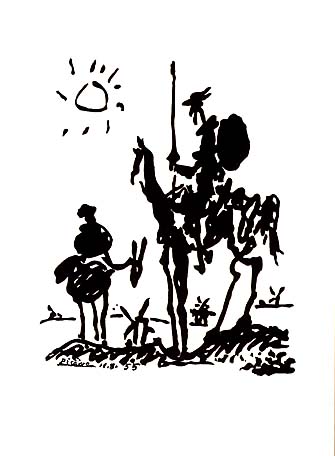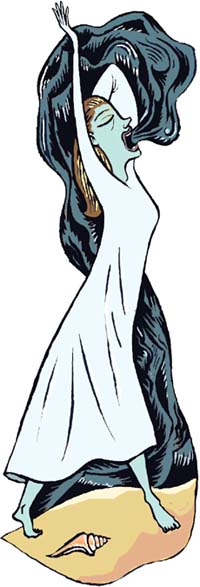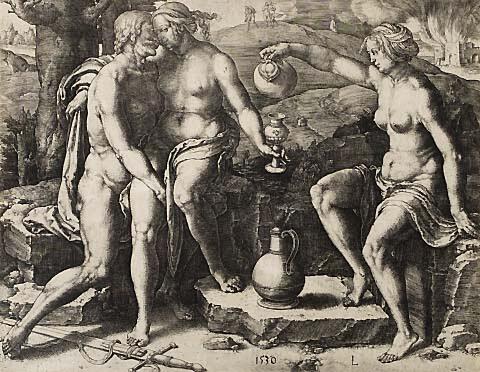What a weekend.. Reflected with the help of Stevens, Food, and Music
What a weekend. I expect this blog will be as random, confusing, and perhaps interesting as my weekend. This could well be my blog that wraps up the good day, the bad day, Wallace Stevens, food, Nicks blog, Don Quixote, and maybe a dash of Frank Zappa; why not?
For starters I must confess that I’m behind in my biblical reading, not as bad on my Frye, and have pretty much completely disregarded Plotz and supplemented Nick’s blog. For some damn reason I cannot get myself into the swing of this semester; senioritis is definitely a part of the cause, relationship trouble another part, not ever having a day off due to school during the week and cooking on the weekends, three lit classes, and the all around anxiousness for winter to completely arrive so I can submerse myself in some cold smoke powder. Am I whining, complaining, and making excuses? Yes. But mostly venting, venting some much needed thoughts under extreme pressure. Pftchsssss… Ahh, a bit better already.
A friend, and new roommate, of mine introduced me to Frank Zappa earlier this year; not actually Frank, he’s dead, but at least his insurmountable plethora of quirky, insightful music. For those of you who aren’t familiar with Zappa it’s

probably because he was way before our time and even his. He lived from 1940-1993 and wrote, directed, conducted, performed, and produced over 70 albums and a handful of movies. Yet surprisingly he’s not an immensely popular, at least for modern standards, musician, but in his day he was the essence of a rock star. Anyway, Zappa has a song, a long song called The Adventures of Greggery Peccary, and depending on the version and album, it’s usually four movements long. Now, Greggery Peccary is a pig. He’s a pig that goes on adventures, but the song, the version I listened to, was an instrumental and so the music influenced the listeners imagined images of Greggery’s adventures. Well, this got me thinking: adventures in movements, parts, divisions; Don Quixote, Cervantes epic, is also a story of adventures in two parts. And Quixote’s adventures are nothing short of outrageous, funny, yet serenely insightful and truly sublime.

The best part: the second half of Don Quixote continues from the first, with the same characters, settings, and an onslaught of adventures, but there’s one big difference; everyone IN the story has read the first part of Quixote’s epic adventures, and knows how silly Quixote can be and easily manipulated and gullible he is. A step further, albeit a shaky, rather somewhat absurd step, consider the bible: The Old Testament and The New; two parts, an original set of little books (adventures) and then updated, creating an incredibly similar set of new little books (adventures). I cannot help myself from believing that Cervantes was to some extent parodying the bible: a first book of outrageous adventures that people believed in, and then a second that continues the ridiculousness with even more believers. At first in Don Quixote it seems as if the people involved in the knight errands affairs are purely poking fun at him, taking him for a fool, comic, and someone who isn’t in touch with “reality;” yet in the second part everyone is more involved and a part of making Quixote’s reality as outrageous as it is; in a sense they partake in his foolery as much as him, creating the reality they think is so absurd. Very clever, and curious.
(Right now as I write this, two grown men started into prayer after having coffee and conversation together at the table next to me, whoa.)
Curious about the Wallace Stevens poem Dr. Sexson mentioned, I clicked on to Nick’s post about Susanna and Wallace, which he begins by saying, “I have often heard from scholars' words that truly the universe is vibrations.” Immediately I was reminded of a paper I wrote a year or two ago about poems by Wordsworth, “Intimations of Immortality,” and Percy Shelley, “Hymn to Intellectual Beauty,” which both contain wonderful poetry about an “awful shadow of some unseen Power,” where “every common sight / To [them] did seem / Apparell’d in celestial light / The Glory and the freshness of a dream.” Nick’s entry has an abundance of entertaining examples of how things are vibrations, then goes on to write, “Matter is, in a sense, a great melody.” And is right by saying that “there’s music in everything.” A vibration resonates, sound soothes, feelings are tamed or executed, an array of vibrations releases resonances.
Earlier this summer I went on a hike. After a mile or so on the main trail I branched left, straight up a steep hillside to the top of the ridge, a fairly brutal hike. On the way down I stopped at a couple interesting rock formations jutting out of the hillside. When I was done exploring a second formation I sat down on the hillside for a water break. It was evening time, a couple hours from sunset; the air was calm, plants green, and canyon walls gorgeous. As I was looking around taking the landscape in a decent size rock started tumbling down the hillside, about 100 yards away from me. It was at about the same elevation and rolled for 60 yards or so before coming to a stop. I was kind of baffled. There were no animals on the hillside, no birds around, only me and a rock rolling down the mountain; I was so curious how it started rooling. I half laughed, half sighed and honestly thought of Percy Shelley’s Hymn, the “Power / Floats though unseen among us, - visiting / This various world with as inconstant wing / As summer winds that creep from flower to flower.” The earth had vibrated, shifted, resonated, moved, gasped or been overcome by an unseen Power and sent this rock rolling along.
Wallace Steven’s poem “The Idea of Order at Key West” also deals with “it,” the power or force from a dream. “Whose spirit is this?” Stevens writes; “If it was only the dark voice of the sea, that rose, or even colored by man waves; if it was only the outer voice of the sky, and cloud, of the sunken coral water walled…” Needless to say the poem is terrific, and Stevens goes on to write, “It

was her voice that made the sky acutest at its vanishing.” Stevens certainly emphasizes the vocal resonances of the unseen power, one that through the woman’s singing creates the world beyond belief, imagination, and nearly poetry. It’s notable that Stevens chooses Susanna, a biblical woman for his Peter Quince poem and that the singer in The Idea of Order is female. At the end of his post Nick mentions the important role and element of female empowerment. Peter Quince is quite a poem and I definitely don’t think I can do it justice but I do love the beginning, the “music is feeling, then, not sound; and thus it is that what I feel, here in this room, desiring you.” This is a gorgeous opening, comparing the beauty and desire a woman emits to the sounds and feelings of music, vibrations. And in the Idea poem, the woman is the singer, the maker, “and singing made.” In a way women are more metaphorically godly because they can give birth; they keep the melody of vibrations in constant flux. And all the meanwhile they’re purposefully creating confusion for the male who can never rise above his animalistic, savage, bawdy, impulses. Clever women.
Yeah, you may have noticed I have no idea how I’m going to tie this all back around to the bible, perhaps it will unconsciously on its own. I was getting a bit tired of Dr. Sexson referring to my long repetitive parallelism entry – I don’t want that to be what I ’m remembered for, it wouldn’t be worthy to have a legacy of repeating things directly below each other. Therefore, I have to figure out how else I can biblically extend this post. Ahh, yes. I still have yet to tell you the story.
In the mornings on the weekend I cook at a small, local calfe; you have to find it to experience it. This weekend, Saturday morning sometime around 10, 11, or 12 to be exact, I found my self in an uncommon situation. For starters, I was a bit out of it Saturday morning for obvious college reasons. The day began mellow enough, then I got slightly reprimanded overcooking potatoes, and then it started getting busy.
When it started getting busy I noticed Tim, a hilarious, jolly, stubborn old man walked in and took a seat near the grill, by me. Now, Tim is old, a bit ornery –we hear from his daughter – and has to be on oxygen all the time. He still drives for some reason, but the best part is he drives a small red pickup truck with two large, large oxygen tanks mounted on each side of the bed of the truck: an genuine red rocket truck. He won’t et his family “put him up in home,” he loves to be independent, socialize and go out to eat on the weekends. This weekend was nearly his last.
After cooking through a little rush, I went into the back to get something from the fridge. I’d fed Tim a while ago, and a number of other customers too, and I need to restock the grill area for the next round. When I was in the back room, I heard Tim start coughing, harshly and forcefully. I walked out to the grill and he was still heaving, coughing really bad, eyes closed, hand at his mouth, grunting, gurgling, coughing, choking. He face was starting to discolor a bit; I walked straight over to him, said, “Tim are you breathing?” He didn’t really nod yes or no, kept coughing a really strange nasty cough that didn’t seem to be getting better. He didn’t seem to be full-on choking, but the cough was terrible, not getting better. He’s old, I was concerned about hurting him if I did the Heimlich, but I was not about to watch someone choke to death on the food I made them. I did give Tim the Heimlich, lightly and stopped. He was still coughing badly; the Heimlich didn’t seem to help. By now quite a few people are concerned. Then his cough changes, he nods, murmurs, and breathes. Whether or not I “saved” or helped Tim through his misbite may never be known. He didn’t seem to acknowledge either way whether he really did need the Heimlich, but I could tell he was glad it didn’t happen to him alone.
And my day kept going. It was actually my mother’s birthday and we had some relatives in town, we all went out for a nice dinner at Over The Tapas. If you’ve ever been to Tapas, you know it’s a bit cramped. Well I was seated with my back to the isle, and when the buss boy, or host, I’m not sure he wasn’t our server, brought our waters – right after we were seated – he spills one all over my shoulder, and fairly nice shirt, for me. Okay, no big deal, its just water. I get my beer, I’m happy, and food arrives and I eat.
When the waitress spouts off the deserts, I ask her to go over the frosting on the cupcakes again, I missed ‘em. She says, “Almont butter, pistachio butter, and chocolate delght.”
I quickly decide, “I’ll take the almond butter please.”
She nods, goes to walk away, stops, turns back to me and says, “I’m so sorry, we’re out of almond butter, I forgot…”
She’s horrified, humiliated, and I kind of laugh. “I’ll take the pistachio, that’s fine.”
“Okay, I’m sorry, I get that right out,” she stammers.
It was the perfect way to end the long, odd one that began 12 hours before the cupcake arrived. Hope that was a long enough, and erratic enough, blog to beat my repetitive parallelism entry. It certainly took me long enough.
Posted by bmcycleski
at 10:38 PM EDT
Updated: Monday, 19 October 2009 10:52 PM EDT



